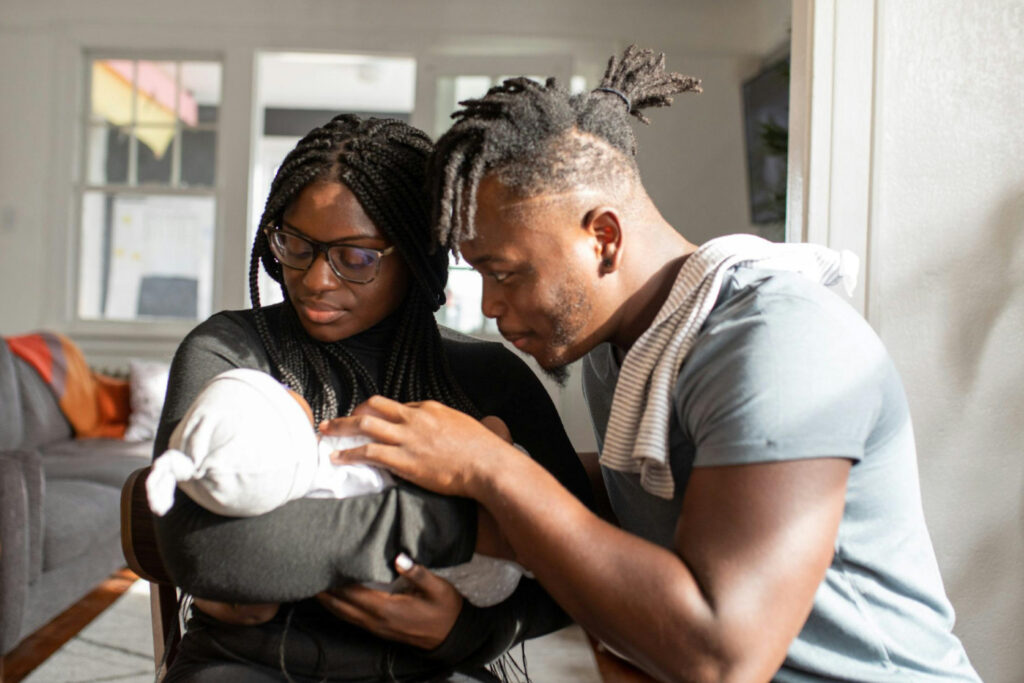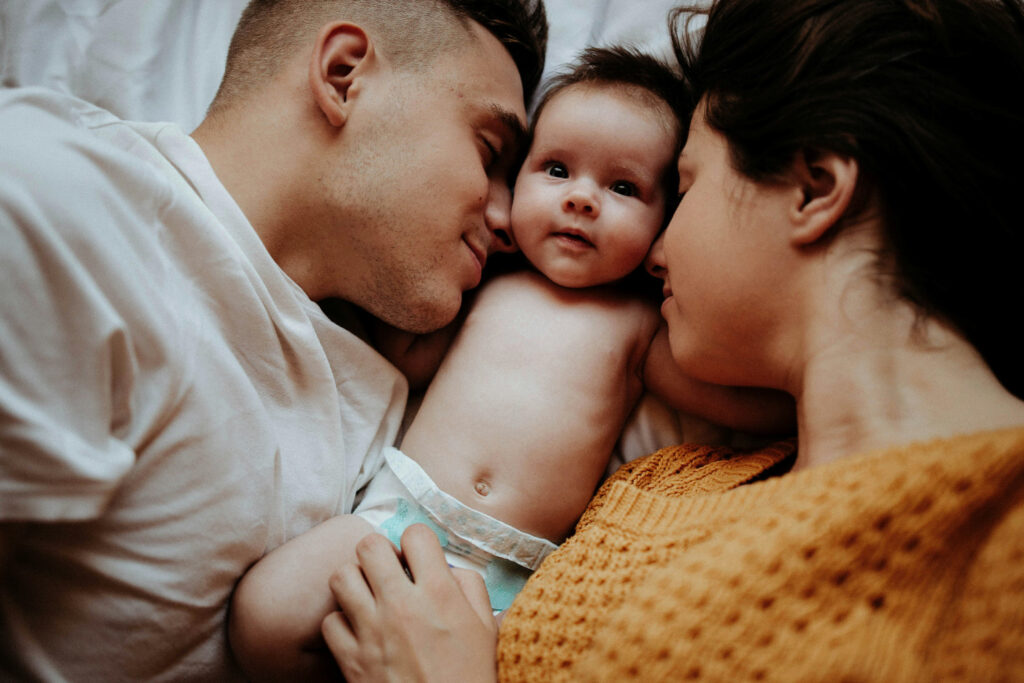
Women have been giving birth since the dawn of human existence. And all that wile, each woman has contended with rapidly and dramatically shifting hormones in addition to sensory overload. For most, this is likely to lead to some version of postpartum mood changes. And at this point, there is no generally accepted way to pre-screen for the likelihood that a woman will experience Postpartum Depression, Postpartum Anxiety, Postpartum Psychosis, or another form of mental health condition after giving birth, or how severe it may be. Yet, the wellness community has only recently begun to recognize – and normalize – its impact. That’s why our practice has made Postpartum Depression Therapy a priority so that we can serve what we still feel is a largely underserved community of women who could benefit tremendously from therapy.
The Postpartum Depression Gap
There is a still a wide gap between having Postpartum Depression and acknowledging you have it in our current society. Many women who have grown up with positive mental health are blindsided by the symptoms of Postpartum Depression, and in many cases, may not even realize they have it. That’s why it’s so important to begin educating women on the signs of Postpartum Depression while offering access to anyone who may be suffering.
Signs of Postpartum Depression
Especially if you have never suffered with depression before, it can be hard to recognize the symptoms. In addition to that, having a newborn comes with tremendous changes that can significantly impact both the mother and the father including (but not limited to) sleep deprivation, significant routine changes, and lack of social support, just to name a few.
To the new mom, it’s reasonable to think that these new feelings of anxiety, sadness, confusion, anger, and even rage are simply a byproduct of environmental changes. And it’s true that these are all significant contributing factors, but the reality is that hormone fluctuation in addition to underlying mental health issues could be the primary cause of symptoms.
The most common symptoms of Postpartum Depression are intense sadness, hopelessness, mood swings, loss of interest in activities, changes in appetite or sleep patterns, difficulty bonding with the baby, excessive worry, and in some severe cases, thoughts of harming oneself or the baby. Symptoms can begin within the first few weeks after birth but may develop later within the first year.
What Causes Postpartum Depression?
While many studies try to pinpoint why some women get Postpartum Depression and others seem not to, the general consensus is that PPD is a mental health condition that is brought on by a combination of genetic and environmental factors.
For example, women who have family members with mental health conditions are at greater risk of experiencing Postpartum Depression. Separately, the rapid decline in estrogen and progesterone levels after giving birth can lead to hormonal imbalances and mood swings, which are among the top contributing factors to PPD. Yet, with all of our modern understanding of the human body and medicine, the medical community is still in its infancy stage when it comes to predicting and treating Postpartum Depression. In part, we feel that this is also due to the unpredictable environmental changes that come with having a newborn.
After all, mental health “flare ups” are often a combination of internal and external factors. In our practice, we feel passionately about helping our clients to modify their environment to help improve overall mental health. There may be no more important time to do this exercise than when welcoming a new child – an experience which brings every parent a tremendous amount of change that can feel sudden and overwhelming. Our goal through Postpartum Depression Therapy at Behaved Brain is to take our formula for improving holistic mental health and offer that to new parents who almost always experience some level of dysregulation during and after pregnancy.
How to Treat Postpartum Depression
While medication may be suggested by most physicians, and a first line of defense against debilitating Postpartum Depression, at our practice, we feel strongly about improving the entire ecosystem around women during their birthing years. Layering individual therapy with couples therapy, support groups, lifestyle changes, and even hormone therapy can offer the most promising defense against Postpartum Depression.
Postpartum mental health struggles are a sign that our bodies and our minds are contending with a tremendous amount of change and pressure. By developing coping skills to better navigate these feelings, we’re helping parents to manage symptoms of depression and anxiety so that they can successfully move through their feelings while supporting one another.
Postpartum Depression Therapy for Couples
Nearly all parents contend with mental struggles during child rearing years. Couples may find themselves more likely to get frustrated, argue, feel alone, or detach from one another. This is not a judgement on the relationship, though, it can feel like it. Time and financial constraints may also add to an already taxed couple who is finding ways to manage a new normal in a household with a new family member who requires a tremendous amount of resources. Without “help,” this is often overwhelming and taxes even the most balanced couples. We are here to help normalize, and improve, postpartum struggles.
Our Postpartum Depression Therapy session are strategically developed to help the individual, often the mother, through one-on-one therapy sessions, while also layering in couples therapy sessions. Unlike traditional couples therapy sessions, the postpartum period comes with a vastly different environment for us to navigate. Our goal is to help couples better understand how their brain is affecting their feelings and make changes to their environment to help extinguish sensory overload. We utilize our foundations of brain health program to help each family member make changes and develop coping mechanisms that will help them navigate their environment today, and well into the future as their family grows.

Can Men Get Postpartum Depression?
It’s true that fathers who are young, have a history of depression, experience relationship problems or are struggling financially are most at risk of postpartum depression. However, postpartum struggles are believed to affect nearly every father. Postpartum depression in fathers — sometimes called paternal postpartum depression — can have the same negative effect on partner relationships and child development as postpartum depression in mothers can. As we normalize the rates of postpartum depression in mothers, we should also normalize that fathers contend with many of the same struggles – especially those that are environmental and lead to mental health challenges.
If you’re interested in our Postpartum Depression Therapy services, or are an expectant or existing parent who is looking to optimize your environment while raising a young family, we invite you to contact our New Jersey office to set up a complimentary consultation. Call 201-857-5380 or email wellness@behavedbrain.com.







